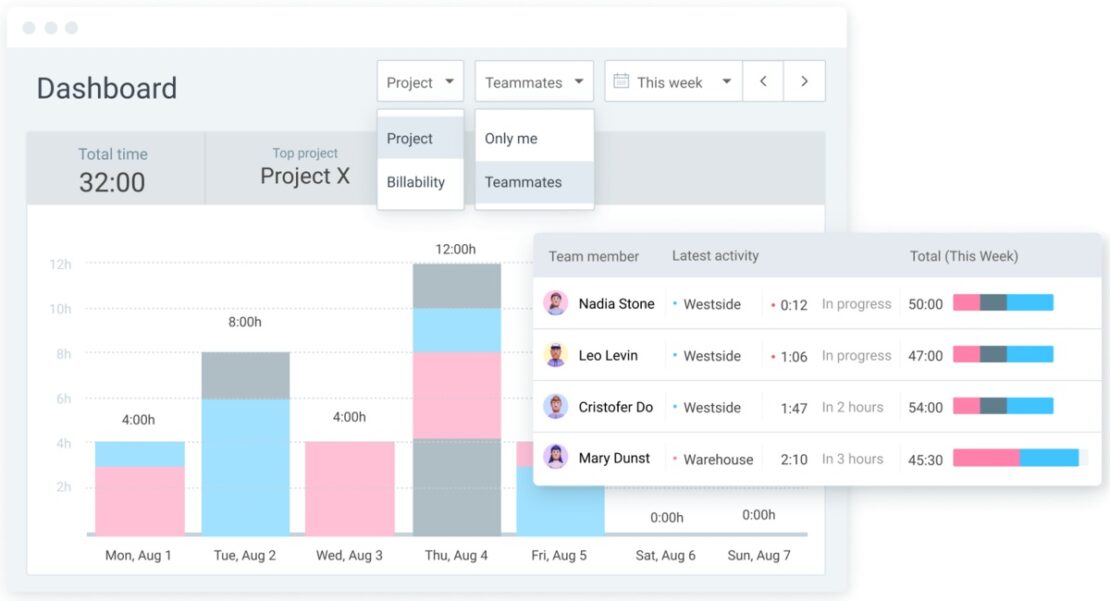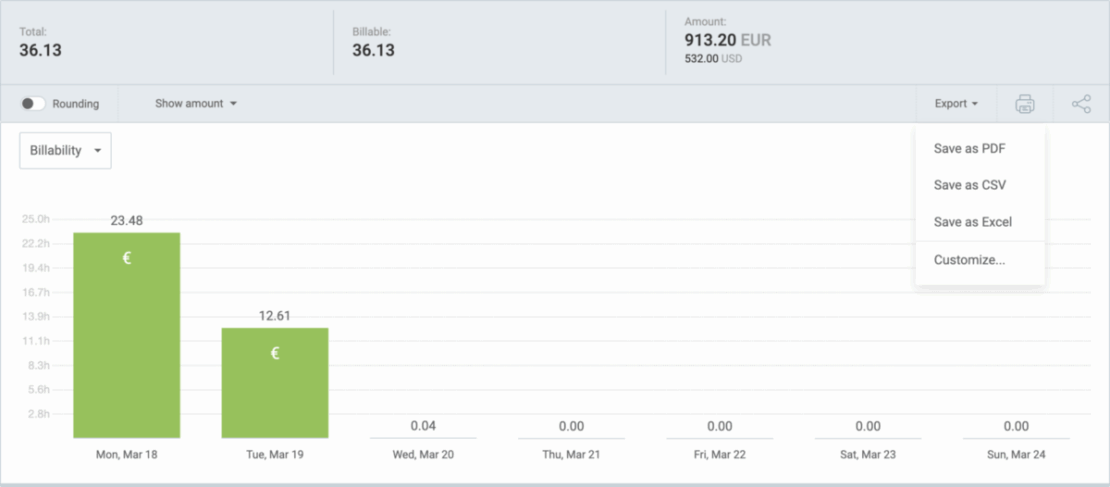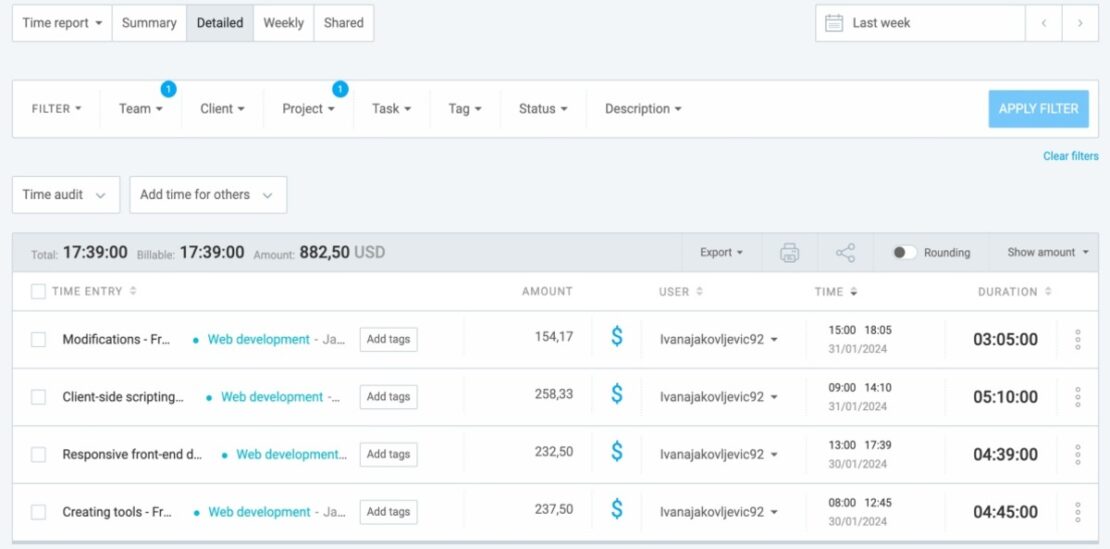Anxious, scared, and reluctant — that’s how people usually feel about tests.
These feelings grow stronger when tests carry potential risks, like whether or not you get into your dream university. In that event, test takers have more to worry about than just studying — mental prep is also essential.
That’s where Apex GMAT steps in. They provide in-person and online tutoring for the GMAT (Graduate Management Admission Test), as well as other tests, like the Executive Assessment and GRE.
We had a pleasant chat with Fatma Xhafa, Engagement Manager at Apex GMAT, about the importance of time tracking in education. Beyond that, we discussed how her team uses Clockify to monitor work and enhance productivity.

Table of Contents
Apex GMAT: Business goals and customer profiles
Fatma’s team at Apex GMAT has clocked a gap in the education industry — a demand for high-quality test prep tutoring.
However, students aren’t alone in their search for educational guidance — business leaders have also joined the chat.
As Fatma pointed out, the GMAT test is an entrance exam for most business schools, which is crucial for pursuing an MBA (Master of Business Administration) or EMBA (Executive MBA).
Since Apex GMAT offers multi-exam prep, Fatma said that they usually hear from busy professionals looking to enroll in graduate schools as the next career step:

“We specialize in working with high-achievers seeking admission to the best MBA programs. They have a very high target score. And we specialize in this very specific range, taking them from one score to the other.”
Our interlocutor’s team helps test takers score big by using a personalized approach to tackle their biggest struggles — anxiety and time management:

“We tell our students that if you know what you’re doing and you’re well prepared, the timing will take care of itself. But it’s good to be mindful of how much time you’re spending on a question. It’s a real skill, having internal time management that will help you get through the exam. Looking at a clock will just create more anxiety and stress for test-takers.”
💡 CLOCKIFY PRO TIP
Want to watch your students sail through exams? Try using a time tracker to help pupils ace time management:
What benefits does Apex GMAT enjoy with Clockify?
As Fatma’s research suggested, Clockify was the time tracker that checked all the boxes for tracking team productivity:

“We wanted a place that could help our HR department with staff time management, measuring their hours and productivity.”
Additionally, our interlocutor wanted all time tracking data in one place, but needed to see staff and client (student) data separately:

“We needed a place where we could measure the time for our clients — how much time the clients are spending in sessions (in billable hours).”
Deliver fast results with Clockify
So, in Fatma’s words, she created 2 workspaces under her Clockify account — one for her employees and the other for the instructors (along with tracked billable hours).
Additionally, she credited Clockify for boosting her own work performance:

“It’s a great tool to increase productivity. It was difficult for me to manage how much time I was spending on specific tasks. With Clockify, I started measuring everything and I created projects and tasks for everything I was working on.”
Not only did time tracking become part of Fatma’s daily routine, but she also learned how to use her time wisely:

“I learned to be better at time budgeting, meaning I would start working from a certain time to a certain time, and then I would allocate some time for a break.”
💡 CLOCKIFY PRO TIP
Your productivity isn’t just about excelling at work — it’s about powering through chores at home, too. Discover how to reach peak personal productivity:
What Clockify features does Apex GMAT find most practical?
Fatma told us that our budget-friendly time tracker lets them track staff time and billable hours for clients.
✉️ If you’re a Clockify user (or have the CAKE.com Bundle, which also includes Pumble and Plaky) and you’d like to have your own customer story featured on our blogs, reach out to us at pr@cake.com!
But which Clockify functionalities are vital for the Apex team? Let’s explore that next.
Clockify feature #1: Dashboard
Fatma claimed that they use Clockify’s dashboard as a window into how they allocate resources to different tasks. In turn, this helps her team make strong, data-driven decisions:

“It helps us allocate our resources and see where we’re spending our time. Therefore, we can be better at planning our time and tasks at a team level.”
Ace resource planning with Clockify
In her words, filtering through all the projects makes the process more enjoyable.
For those unfamiliar with Clockify, you can drill down into data in the dashboard using filters, like:
- Date range,
- User,
- Project, and
- Billability.

Clockify feature #2: Reports
Our interlocutor praised Clockify’s reports for their customizability.
To illustrate, Fatma explained that our time tracking app lets her customize reports by exam type and instructor — which helps considering that each instructor has several trainees.
Our interlocutor also expressed enthusiasm about Clockify’s report exports, finding the downloaded files user-friendly:

“The other thing I really like is downloading the reports as a PDF, CSV, or Excel. I do that regularly, especially with billable hours. I can see hours in decimal, the start time, and end time. It’s very comprehensive.”

Bonus tip: You can always skip exports and just share your reports for more efficiency. Simply send a private link to your report to team members and clients, and they’ll be able to access it at any time — even if they’re not Clockify users.
How Clockify fuels Apex GMAT’s continued success
What’s the link between time management and taking an important test? The time you take to answer each question before the bell rings.
And so, Clockify guides Apex GMAT in time allocation similarly to how they train their pupils for tough tests.
From Fatma’s experience, our simple yet valuable time tracker brought her team competitive advantages like:
- Improved productivity,
- Better time distribution, and
- Transparent employee supervision.
And it’s all thanks to a handful of impressive functionalities, including:
- Providing a quick summary of your team’s current activity, and
- Personalizing time reports and sharing them with others.




